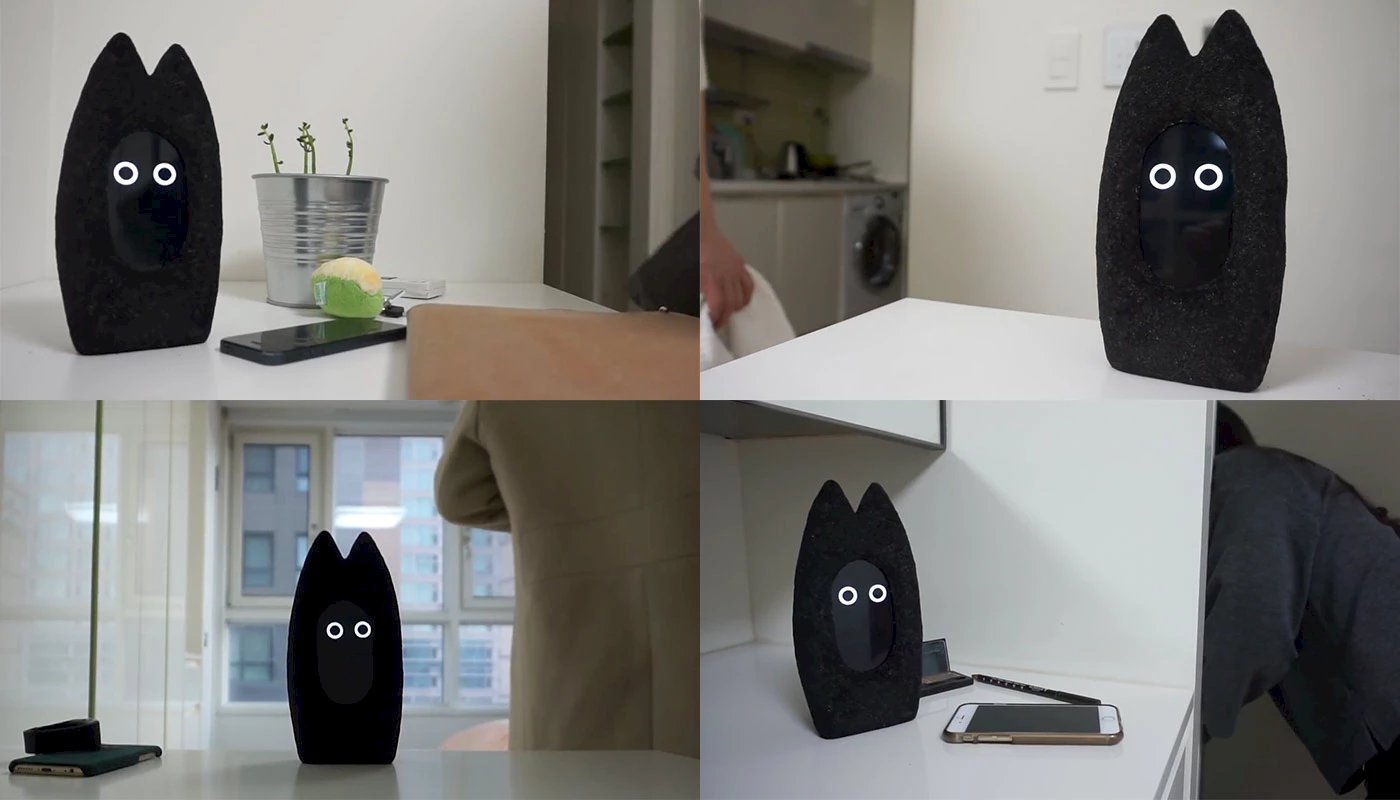Fribo, an isolation-fighting robot

Fribo. © Yonsei University/KAIST.
In North America, like in Asia, more and more youth between the ages of 18 and 35 live alone. In Korea, this phenomenon is particularly widespread, and researchers are trying to find ways to minimize the sense of isolation. Last month, during the ACM/IEEE International Conference on Human Robot Interactions, Korean roboticists presented a robot called Fribo, which was developed to allow young adults who live on their own to maintain daily contact with their friends, and doing so by listening to what’s happening in your life and those of your friends. In fact, Fribo works by listening to the daily sounds of your life. The robot’s voice recognition is minimal (and it doesn’t record voices) so it’s more private than something like Alexa. It’s also more intelligent in many respects, with the ability to understand what’s going on in its environment simply by analyzing noise. Fribo can recognize noises like the sound of a vacuum cleaner running, a microwave, a washing machine, the sound of a fridge door opening and closing, the sound of doors, etc. With time and some help, it’s able to learn the meaning of new sounds. The robot also has an ultrasound sensor so it can detect if you’re in the room or not, as well as temperature, humidity and ambient light sensors. When a Fribo hears a noise in your house that it recognizes, it sends a message to your friends’ Fribos, for example: “Oh, someone just opened the fridge door. I wonder what your friend is going to eat.” Though the concept appears strange (OK, its frankly bizarre), the first tests have been conclusive. For example, one young woman said, “Fribo helped break the silence and emptiness I felt at home after work. It’s different from the TV because it gives information about my friends’ activities. The robot seems like a living creature.” The study was conducted in Korea, however, and researchers noted they weren’t sure that Fribo would work as well in other cultural contexts.
⇨ IEEE Spectrum, “Fribo: a robot for people who live alone.”
